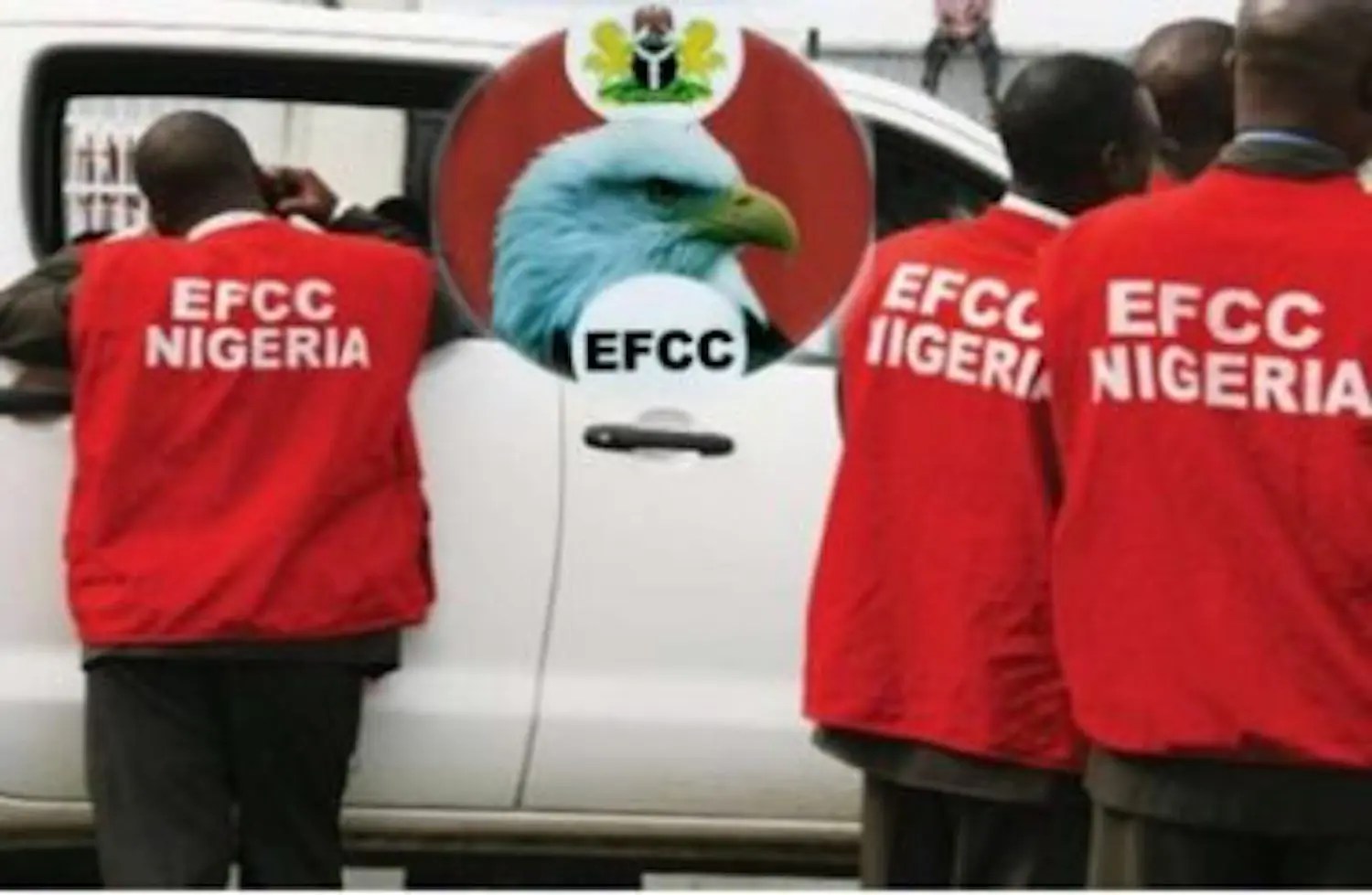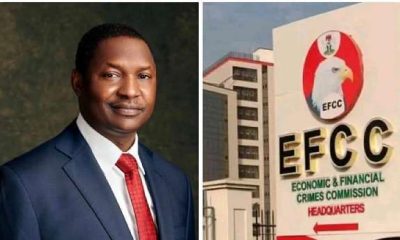Crime
EFCC Arraigns Ex-Lagos Attorney-General For Money Laundering

A former Attorney-General (A-G) of Lagos State, Olasupo Shashore, on Thursday appeared before a Federal High Court in Lagos to answer to a money laundering charge preferred against him by the Economic and Financial Crimes Commission (EFCC).
Mr Shasore served as the Attorney-General of Lagos State and the Commissioner for Justice during the tenure of Babatunde Fashola as the governor.
He was arraigned before Chukwujekwu Aneke on a four-count charge bordering on money laundering.
The prosecution accused the defendant of inducing one Olufolakemi Adetore to accept cash payment without going through a financial institution.
He, however, pleaded not guilty to the charge.
After his plea, the prosecutor, Bala Sanga, urged the court to order a remand of the defendant in custody pending trial.
However, the defence counsel, C A Candide-Johnson, who appeared with Muiz Banire, Adesegun Adebola and Chijioke Okoki prayed the court to allow the defendant bail on self-recognisance.
The defence counsel averred that the defendant personally walked into the court for his arraignment this morning without any reminder, compulsion, or force.
He also informed the court that the defendant had cooperated with the anti-graft agency whenever required, as he had always made himself as well as documents requested from him available whenever required.
Besides, the defence counsel added that an investigation of the matter had been on for the past three years, adding that the defendant is not a flight risk
He, therefore, urged the court to exercise its discretion in favour of the defence.
The prosecutor on his part said that he was not opposed to bail but added that the concern of the prosecution is only for the defendant to be available to stand trial as lawfully required.
Following the submissions by counsel, the court stood down the matter for a while, so as to deliver a ruling on the bail application
In his ruling, the court held: “There is no doubt that the court must strike a balance based on the evidence before it, between the constitutional rights of the defendant to liberty and presumption of innocence and the rights of the state to prosecute its erring citizens.
“Hence, the overriding need by the court to ensure that the complainant/respondent is not incapacitated in the discharge of its function by not releasing the defendant on bail,” he said.
The court held that exercising its discretion in granting bail in favour of the applicant, would better serve the course of justice, as an accused is presumed innocent until guilt is proven.
“The defendant’s application for bail succeeds and the bail is accordingly granted in the following terms:
ⓘ
“Defendant applicant is admitted to bail in the sum of N50 million with one surety in like sum.
“The surety must be a serving director or a permanent secretary in the service of the federation or the Lagos State Government.
“Surety to produce two copies each of his or her recent passport photograph and evidence of payment of tax or tax clearance.
“The defendant’s international passport with the complainant shall be deposited with the registrar of this court pending trial; This is the ruling of the honourable court,” he said.
Meanwhile, the court did not make any remand order on the defendant who was already on bail.
The court, however, released him to his lawyers pending the perfection of his bail.
The judge adjourned the case until 24 November for trial.
In the charge, Mr Shasore was alleged to have made a cash payment of $100,000 to one Olufolakemi Adelore through one Auwalu Habu and Wole Aboderin.
He was alleged to have committed the offences on or about 18th November 2014.
The EFCC also alleged that the defendant made a cash payment of $100,000 to one Ikechukwu Oguine without going through a financial institution.
The allegations, if proven, contravene the provisions of Sections 1(a) 16(1)(d), 18(c) and 78(c) of the Money Laundering (Prohibition) Act, 2011 (as amended).
-

 Opinion5 days ago
Opinion5 days agoThe Clout-chasing Dipo Awojide By Comrade Da’Peace
-

 News4 days ago
News4 days agoRamadan, Lent: Shettima Calls For National Unity And Compassion
-

 Opinion4 days ago
Opinion4 days agoReinventing Osun’s Economy Through Dagbolu Intl. Trade Centre: From Quiet Market Lessons To Regional Trade Revolution By Adeboye Adebayo
-

 News4 days ago
News4 days ago‘Wike Factor’: Another PDP Chairmanship Candidate Steps Down For APC In FCT












